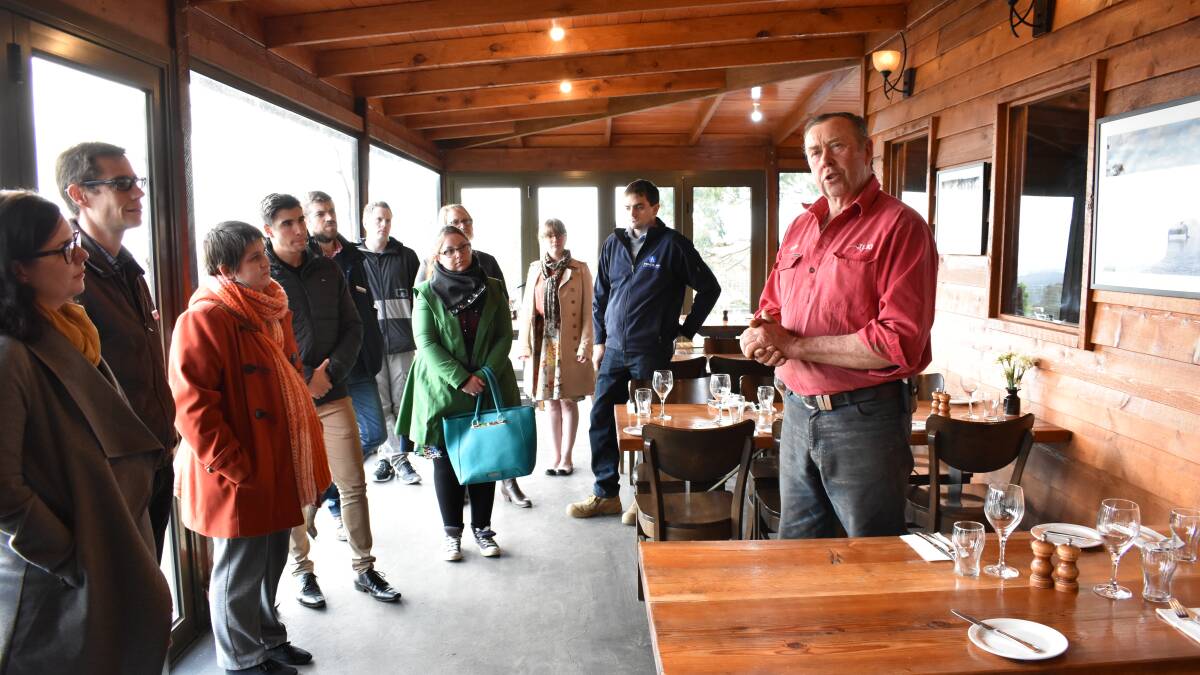
As part of the Leaders Forum agriculture program day, we were treated to an enlightening presentation by Tom Quinn from the Future Business Council. The legalities requiring CEOs to consider the risks associated with climate change will no doubt have an impact on the commercial world, with content expanding beyond the cost of electricity prices.
Subscribe now for unlimited access.
or signup to continue reading
Shareholders who fail to bail out of poor-performing stocks will be encouraged and convinced by the legal industry that they’re not responsible for personal investment performance and licking their lips at the thought of loss recovery through CEO negligence.
I found a prediction about robotics and technology playing a major role in the future of farming most interesting. This prediction was certainly validated by agricultural training consultant Grant Pritchard's presentation on farming in Indonesia. He referenced the difference in the cost of farming products between Australia and Indonesia being attributed to extremely low labour costs.
The example of chillies being more than 20 times more expensive in the Australian supermarket certainly suggests local chilli farmers have a problem. Yes, there is a competitive advantage with the “Australian made” and “organic” product stamps, but the substantial cost difference would infer Australia should not have a chilli market and that we should all start importing chillies from Indonesia. What other farming markets are in a similar position? Potatoes? Fruit markets? Wheat? If robotics can’t make up the difference, what will Australian farmers do with their farms, and what will Australia become? Will the government continue down the path of free trade? If not, then significant change is imminent.
The second take-away for the day was a feeling of gratitude for our local health system. Learning the frequency of child mortality in Indonesia is certainly a massive contrast to what happens in Australia and, for this, I am grateful to the medical professionals and policy makers that have given us all a chance at life. It was interesting to learn that some Indonesians eat similar portions of food to contestants on the TV show Survivor and generally cruise through the working week without doing too much work because they lack energy.
This is an extreme contrast to my Australian life, where we engage in long debates about what take-away we are going to buy. Will it be a gluten-free IQ burrito from Zambrero or a hot lamb and mixed vegetable curry from the Aroma of India? Tough call and I'm getting hungry writing about it.
It would, however, be nice to have some time to cruise through the working week, with most Australians finding it difficult to move from “work time” into “free time”.
I loved the visit to Tuki Trout Farm in Smeaton. What an interesting difference in generational perspective on the value of work and, possibly, the missing ingredient to all those experiencing sub-standard Australian living conditions. Owner Robert Jones’ story was inspiring. Hearing that his father grew up in an orphanage yet broke the mould with hard work and character gives hope. His father’s legacy to his family is a commitment to hard work, being adaptable and long-term planning. This is what Mr Jones defined as Tuki's recipe for surviving the Australian farming business.
That'll do for me. I'm going to get a burrito and buy the kids nachos they won’t finish.













